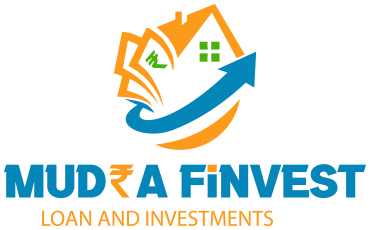A mortgage loan is a financial product that allows individuals or businesses to borrow money from a lender to purchase property. The property itself serves as collateral, ensuring the lender’s security. Mortgage loans are one of the most popular ways to finance the purchase of a home, land, or commercial property.
Types of Mortgage Loans
- Fixed-Rate Mortgages
- The interest rate remains constant throughout the loan tenure.
- Predictable monthly payments make budgeting easier.
- Adjustable-Rate Mortgages (ARMs)
- Interest rates fluctuate based on market conditions.
- Initial rates are typically lower than fixed-rate mortgages but may increase over time.
- Interest-Only Mortgages
- Borrowers pay only the interest for a specific period before principal repayment begins.
- Suitable for short-term affordability but can be risky in the long run.
- Reverse Mortgages
- Designed for senior citizens, allowing them to convert home equity into cash.
- Repayment occurs when the borrower sells the house or passes away.
Eligibility Criteria
The eligibility criteria for a mortgage loan may vary based on the lender, but common factors include:
- Age
- Most lenders require applicants to be at least 21 years old.
- The maximum age at loan maturity is usually 60–70 years for salaried individuals and 65–75 years for self-employed individuals.
- Income
- A stable and sufficient income is crucial.
- Lenders assess income-to-debt ratio to determine repayment capacity.
- Credit Score
- A good credit score (usually 650 or above) increases the chances of approval.
- It also impacts the interest rate offered.
- Employment Status
- Salaried employees must provide proof of steady employment.
- Self-employed individuals need to show business stability and income consistency.
- Property Valuation
- The property’s market value and legal standing play a significant role.
- Lenders may approve loans up to 75-90% of the property’s value.
- Down Payment
- Borrowers must typically provide a down payment of 10–25% of the property’s cost.

Key Documents Required
- Identity Proof (Aadhaar, Passport, Voter ID, etc.)
- Address Proof (Utility bills, rental agreement, etc.)
- Income Proof (Salary slips, IT returns, bank statements)
- Property Documents (Sale agreement, title deed, approved building plans)
- Photographs (Passport-sized)
Benefits of Mortgage Loans
- Affordability: Allows individuals to buy property without full upfront payment.
- Tax Benefits: Interest and principal payments may qualify for tax deductions under applicable laws.
- Long Tenures: Repayment periods can range from 10 to 30 years, making EMIs manageable.
- Equity Building: As you repay, you build ownership equity in the property.
Tips to Get the Best Mortgage Loan
- Compare Lenders: Research interest rates, fees, and terms from multiple lenders.
- Improve Your Credit Score: A higher score can help you secure better terms.
- Save for a Larger Down Payment: Reduces the loan amount and lowers EMIs.
- Read the Fine Print: Understand all fees, penalties, and prepayment charges.
- Choose the Right Tenure: A longer tenure reduces EMIs but increases interest outgo.
Conclusion
A mortgage loan is a vital tool for aspiring homeowners or property investors. By understanding the eligibility criteria, types, and benefits, borrowers can make informed decisions and secure the best loan terms for their needs. Always work with reputable lenders and ensure all documentation and processes are legally sound.

Have Any Query
